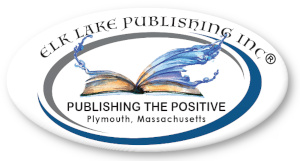Do I Need A Book Writing Coach?

Have you ever felt stuck with your writing project? Whether you write fiction or nonfiction, sometimes we need a little help to free us from what I call 'hitting the wall.'
How can a writing coach help?
Here are some possible scenarios:
- You've written a previous manuscript or manuscripts, but this one has you stuck.
- You've finished a draft but are not satisfied with the result.
- You've wanted to write on a particular subject, but are not sure where to begin.
- You need an accountability partner who will hold your feet to the flame.
What to look for in a writing coach
- Hourly cost. Many coaches work on an hourly rate ranging from $50/hour to $200/hour
- Packages. This is an option if you are working on a longer project. Many coaches charge a monthly rate that may include Zoom calls, developmental edits, and steady guidance.
- Shop around. We recommend interviewing a few coaches to find one that fits your personality and needs.
- We recommend checking out AWSA and The Christian Editors Association:
Conference season is in full swing!
You've attended a writing conference and now you're home. It's natural to feel let down when you get back into your routine.
Don’t Be Surprised by Post-Conference Letdown.
Lori Hatcher
It’s conference season. All over the country writers flock to writers conferences, hoping to learn secrets of the craft, pitch new ideas, and connect with fellow wordsmiths. Conferences can be both exhilarating and frightening.
Even the best conference experience, however, can leave you feeling let down. Let’s examine a few reasons why you might feel discouraged or depressed in the days following a really good writers conference.
- Because it’s hard to come down off the mountain.
At conferences we’re surrounded by fabulous teaching, inspiring worship, and encouraging feedback. Serious writers want to drink from the instructional well forever. There’s so much to learn and so little time. We don’t ever want it to end. We know that when the door closes on the final workshop, we’ll have to re-enter the real world, and the real world is nothing like our mountain top experience. It’s hard to transition from the lofty heights of writers’ heaven to the ground-level sod of our mortal existence.
- Because you enjoyed connecting with other writers.
Where else can you find writing soul mates everywhere you turn? That lady in line in front of you? She gets that you write best in your pajamas while eating chocolate-covered pomegranate seeds after midnight. That guy in the non-fiction workshop? He also wants to write books to help teens find meaning and purpose. And that agent? He’s spent his entire career looking for a writer just like you. Unlike your family, who thinks you’re gifted but a little strange, or your co-workers who tease you about your ostentatious vocabulary, these people GET you. After days of fellowshipping with your long lost brothers and sisters, it’s hard to go back to being a literary orphan.
- Because now you have work to do.
I leave every writers conference I attend (even the ones where I serve on faculty) with a To Do list. Spruce up that blog. Try a different social media strategy. Submit my article to the editor who asked for it. Applying what I’ve learned means hours of writing, editing, and rewriting. It means following up on potential leads, writing thank you notes (you do take time to thank those who helped you, don’t you?), and sorting through your handouts to mine the gems. Sitting in class, even if our mind is engaged and our fingers are taking notes, is passive. Applying what we’ve learned to our current WIP is work. And work is hard.
- Because you realize that the writing life is a journey, not a destination.
You may have arrived at the conference convinced your WIP was ready to launch, only to find out it still needs work. You may have hoped to secure an agent or publisher, but didn’t. You may have dreamed of winning a contest or award, but the plaques went to better writers. It’s a rare individual who can celebrate wholeheartedly for the winners without being discouraged or disappointed. But for even the most accomplished writer, the writing life is a journey, not a destination.
So what do we do when we find ourselves discouraged after a writers conference? Here are three tips:
- Discouragement, depression, and lack of motivation are often byproducts of fatigue. Because writers conferences are mentally and physically draining, the lack of sleep, late hours, and over-the-top social interaction can tire even the most energetic person. In the days following a conference, be sure to get extra sleep before tackling your To Do list.
- Just because you learned a hundred different things to apply to your writing life doesn’t mean you should implement them all. And just because an editor told you to rewrite a scene or rework a proposal doesn’t mean you should. Ask God to help you discern which suggestions to apply and which to discard or save for later. Pray James 1:5 over your writing decisions.
- Remember God. As Christian writers, we hold the pen, but God makes the ink flow. We sow and water, but God gives the increase. Sometimes, in our quest to be good stewards of the writing trust God has given us, we forget that God has invited us to be part of his grand plan, instead of the other way around. Remembering that he who began a good work in us will be faithful to complete it (Phil. 1:6), helps us release the final results to God, knowing we can trust him to accomplish his good purposes for our writing life.
So the next time you attend a writers conference, don’t be surprised by post-conference letdown. Understand the causes, have a strategy to deal with it, and allow it to make you an even better writer than before.
Now it’s your turn. Have you ever experienced post-conference let down? What did you do to overcome it?
Lori Hatcher is the editor of Reach Out, Columbia magazine and the author of the 2016 Christian Small Publisher Book of the year, Hungry for God … Starving for Time, Five-Minute Devotions for Busy Women. A blogger, writing instructor, and inspirational speaker, her goal is to help women connect with God in the craziness of life. You’ll find her pondering the marvelous and the mundane on her blog, Hungry for God. . . Starving for Time . Connect with her on Facebook, Twitter (@LoriHatcher2), or Pinterest (Hungry for God).
Featured Blogs
Elk Lake Publishing, Inc. August Releases
A marriage of convenience in 1907 begins the union of one of the most intriguing founding families in Hamilton Harbor. The legacy of this couple provides the backdrop in which secrets of the past, and restoration in the present generates valuable lessons in faith, and love for the future. Short story prequel to And Then…
Read MoreJuly Releases from Elk Lake
Three months ago, Ali Lamarque’s mother died in an accident Ali is convinced she could have prevented, and what little faith she had is fading. Grief-stricken, her father, a renowned scientist, has sold their California ranch and buried himself in his work. He will soon leave for Brazil’s Amazon Rainforest on business. Ali’s relationship with…
Read MoreSecond Quarter 2018 Releases from Elk Lake Publishing Inc
Elk Lake released twelve books in the second quarter: Be the Miracle-Second Edition by Delores Liesner The Last Aliyah by Mark Leslie The Mysterious Matt Barnes by Matthew Weigelt Cleansed by Death-Second Edition by Catherine Finger Shattered by Death-Second Edition by Catherine Finger Anchored by Death-Second Edition by Catherine Finger’ Dangerous to Know by Megan…
Read MoreNew Book Releases from Elk Lake
New Releases from Elk Lake: The Lost Generation by Erica Marie Hogan; Miracle on Maple Street by Linda Wood Rondeau; The White Rose by Ace Collins; Weighed Down by Laurie Boulden; Bible Characters Through the Ages: Books Four (Esther), Five (Isaac), and Six (Jacob); Pursuing Gold by Cynthia L. Simmons; 28 First Kisses by Sandra…
Read MoreElk Lake Committed to ‘Publishing the Positive’
Elk Lake Committed to ‘Publishing the Positive’ Independent Publisher Focuses on Inspirational Books PLYMOUTH, Mass. (October 20, 2016)—Elk Lake Publishing, Inc. announces the acquisition of the assets of Elk Lake Publishing from the Book Club Network, Inc. and looks forward to its future “Publishing the Positive.” An independent, royalty-paying publisher, Elk Lake offers over 100…
Read More